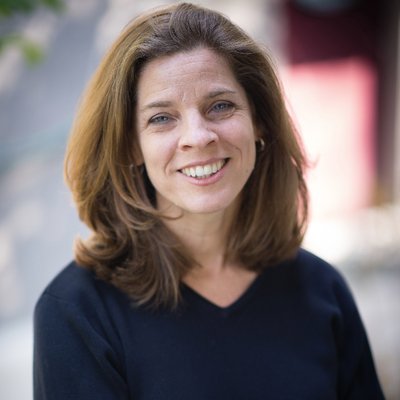
Christy E. Lopez joined the faculty as a Distinguished Visitor from Practice in 2017, and was made Professor from Practice in 2020. From 2010 to 2017, Professor Lopez served as a Deputy Chief in the Special Litigation Section of the Civil Rights Division at the U.S. Department of Justice. Professor Lopez led the Division’s group conducting pattern-or-practice investigations of police departments and other law enforcement agencies, including litigating and negotiating settlement agreements to resolve investigative findings. Professor Lopez also helped coordinate the Department’s broader efforts to ensure constitutional policing.
Professor Lopez directly led the team that investigated the Ferguson Police Department and was a primary drafter of the Ferguson Report and negotiator of the Ferguson consent decree. She also led investigations of many other law enforcement agencies, including the Chicago Police Department, the New Orleans Police Department, the Los Angeles Sheriff’s Department, the Newark (New Jersey) Police Department, and the Missoula, Montana investigation. The Missoula matter was the Division’s first pattern-or-practice investigation to focus on the collective law enforcement response to allegations of sexual assault, and the first to focus on a prosecutor’s office. Professor Lopez helped formulate and draft the DOJ statement of interest in the Floyd litigation, challenging the New York Police Department’s stop-and-frisk practices, as well as DOJ guidance released in 2015 on preventing gender bias in the law enforcement response to sexual assault and domestic violence.
Professor Lopez’ career has been largely focused on criminal justice reform, and constitutional policing in particular. After clerking on the Alaska Supreme Court for Justice Robert L. Eastaugh, Professor Lopez began her civil rights career as an Honor’s Attorney in the Civil Rights Division from 1995-2000, investigating and litigating cases regarding jails, prisons, and police departments. Professor Lopez later served as a federal court monitor of the Oakland (California) Police Department for Senior District Judge Thelton E. Henderson of the Northern District of California.
Throughout her career, Professor Lopez has been involved in police reform efforts at the state, local, and federal levels: she has conducted independent reviews of police shootings; served on the Maryland Attorney General’s Task Force on Electronic Weapons; was a contributing writer on the Prison Rape Elimination Act (PREA) Commission Report on sexual violence in prisons, jails, and lockups; and has served on various other commissions and working groups related to police standards.
In 2016, Professor Lopez was awarded the Flame Award by the National Association for Civilian Oversight of Law Enforcement (NACOLE) for her long-term commitment to police accountability and civilian oversight. In 2015, Professor Lopez was awarded the Department of Justice’s highest employee honor, the Attorney General’s Exceptional Service award, for her work leading the Ferguson Police Department pattern-or-practice investigation. In 2013, Professor Lopez was awarded the Attorney General’s John Marshall Award for her work leading the New Orleans Police Department investigation and consent decree negotiation.
At Georgetown, Professor Lopez teaches Georgetown’s required Criminal Justice course as well as seminars and experiential courses related to policing and the criminal legal system. She also is the faculty co-director of Georgetown Law’s Center for Innovations in Community Safety. She currently serves as an Advisor on the American Law Institute (ALI) Principles of Law, Policing. In 2020-21 she co-chaired the DC Police Reform Commission, whose recommendations are captured in its report, Decentering Police to Improve Public Safety. Professor Lopez is the author of a number of reports, book chapters, and scholarly articles regarding policing and the criminal legal system. She also is a contributing columnist to the Washington Post. Professor Lopez is licensed to practice law in Washington DC and California.

The Council on Criminal Justice is founded on the belief that a fair and effective criminal justice system is essential to democracy and a core measure of our nation’s well-being.
Your tax-deductible support ensures that the Council can advance solutions that enhance safety and justice for all.